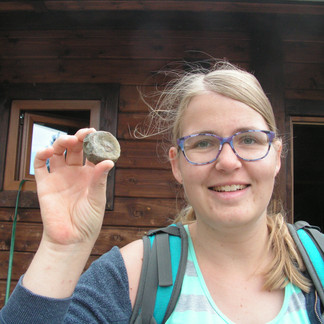Palaeobiology Workshops Completed!
- Wild Areas Network
- Jul 31, 2019
- 2 min read
Updated: Dec 16, 2022

How much experience, skills and knowledge can you get in ONE DAY?
- I've been here for almost two weeks but I feel like after very intensive two months or so! It's crazy! - says Suzan, one of our Volunteers from the Netherlands.
On our very first day in the field she discovered seven vertebrae of Metoposaurus and got an official permission to keep one of them as a souvenir. We've also found several jaws and ribs of this amphibian, as well as about 20 phytosaur teeth, many complete fossilized ganoid fish skeletons and probably remains of a secretive and largely unknown flying reptile - Ozimek volans.
Our activities were divided between digging at Krasiejow Excavation Site, preparation of fossils in the laboratory, searching for microfossils and participation in field trips to neighbouring quarries and other areas of high Palaeobiological interest. We've visited and worked in various habitats, including remnants of coral reef, Muschelkalk sites and caldera of extinct volcano, St Anna's Mountain. As Wild Areas Network Volunteers we also had a free and unlimited access to all the Collections and Exhibitions of adjacent Palaeontology Theme Park (Jurapark Krasiejow), including Palaeo Oceanarium and Interactive Human Evolution Center.
YES. We know that our Facebook, Email and Website remain silent for long. That's simply because we want to use all our limited time spent together to the fullest. Get to know each and every Volunteer and be inspired. Share our passions. Swap stories and experiences about Palaeoart, research on fossilized coral reefs of Borneo, jungles of Ecuador and learn traditions and different languages that we speak.
It is totally impossible to focus on your FB and Smartphone when you have such fascinating persons around! Now they are returning to their homes worldwide, where they will share our story in an individual way, very different from the internet messages - and let it remain in memories passed forward.
Special Thanks to Students and Staff of University of Opole and European Palaeontology Center who hosted our Volunteers and made our international cooperation possible!


















































































Kommentare